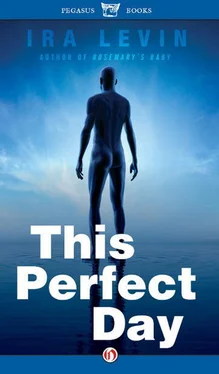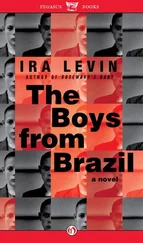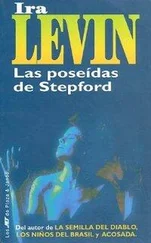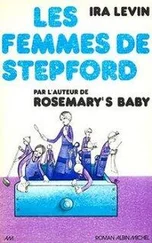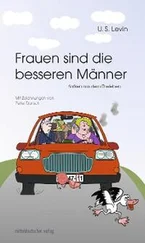Chip turned his face to the sky and held it steady under the rain, trying to feel as if he were so sad he was crying.
EARLY IN HIS THIRD and final year at the Academy, Chip took part in a complicated exchange of dormitory cubicles worked out to put everyone involved closer to his or her girlfriend or boyfriend. In his new location he was two cubicles away from one Yin DW; and across the aisle from him was a shorter-than-normal member named Karl WL, who frequently carried a green-covered sketch pad and who, though he replied to comments readily enough, rarely started a conversation on his own.
This Karl WL had a look of unusual concentration in his eyes, as if he were close on the track of answers to difficult questions. Once Chip noticed him slip out of the lounge after the beginning of the first TV hour and not slip in again till before the end of the second; and one night in the dorm, after the lights had gone out, he saw a dim glow filtering through the blanket of Karl’s bed.
One Saturday night—early Sunday morning, really—as Chip was coming back quietly from Yin DW’s cubicle to his own, he saw Karl sitting in his. He was on the side of the bed in pajamas, holding his pad tilted toward a flashlight on the corner of the desk and working at it with brisk chopping hand movements. The flashlight’s lens was masked in some way so that only a small beam of light shone out.
Chip went closer and said, “No girl this week?”
Karl started, and closed the pad. A stick of charcoal was in his hand.
“I’m sorry I surprised you,” Chip said.
“That’s all right,” Karl said, his face only faint glints at chin and cheekbones. “I finished early. Peace KG. Aren’t you staying all night with Yin?”
“She’s snoring,” Chip said.
Karl made an amused sound. “I’m turning in now,” he said.
“What are you doing?”
“Just some gene diagrams,” Karl said. He turned back the cover of the pad and showed the top page. Chip went close and bent and looked—at cross sections of genes in the B3 locus, carefully drawn and shaded, done with a pen. “I was trying some with charcoal,” Karl said, “but it’s no good.” He closed the pad and put the charcoal on the desk and switched off the flashlight. “Sleep well,” he said.
“Thanks,” Chip said. “You too.”
He went into his own cubicle and groped his way into bed, wondering whether Karl had in fact been drawing gene diagrams, for which charcoal hardly even seemed worth a trial. Probably he should speak to his adviser, Li YB, about Karl’s secretiveness and occasional unmemberlike behavior, but he decided to wait awhile, until he was sure that Karl needed help and that he wouldn’t be wasting Li YB’s time and Karl’s and his own. There was no point in being an alarmist.
Wei’s Birthday came a few weeks later, and after the parade Chip and a dozen or so other students railed out to the Amusement Gardens for the afternoon. They rowed boats for a while and then strolled through the zoo. While they were gathered at a water fountain, Chip saw Karl WL sitting on the railing in front of the horse compound, holding his pad on his knees and drawing. Chip excused himself from the group and went over.
Karl saw him coming and smiled at him, closing his pad. “Wasn’t that a great parade?” he said.
“It was really top speed,” Chip said. “Are you drawing the horses?”
“Trying to.”
“May I see?”
Karl looked him in the eye for a moment and then said, “Sure, why not?” He riffled the bottom of the pad and, opening it partway through, turned back the upper section and let Chip look at a rearing stallion that crammed the page, charcoaled darkly and vigorously. Muscles bulked under its gleaming hide; its eye was wild and rolling; its forelegs quivered. The drawing surprised Chip with its vitality and power. He had never seen a picture of a horse that came anywhere near it. He sought words, and could only come up with, “This is—great, Karl! Top speed!”
“It’s not accurate,” Karl said.
“It is!”
“No it isn’t,” Karl said. “If it were accurate I’d be at the Academy of Art.”
Chip looked at the real horses in the compound and at Karl’s drawing again; at the horses again, and saw the greater thickness of their legs, the lesser width of their chests.
“You’re right,” he said, looking at the drawing again. “It’s not accurate. But it’s—it’s somehow better than accurate.”
“Thanks,” Karl said. “That’s what I’d like it to be. I’m not finished yet.”
Looking at him, Chip said, “Have you done others?”
Karl turned down the preceding page and showed him a seated lion, proud and watchful. In the lower right-hand corner of the page there was an A with a circle around it. “Marvelous!” Chip said. Karl turned down other pages; there were two deer, a monkey, a soaring eagle, two dogs sniffing each other, a crouching leopard.
Chip laughed. “You’ve got the whole fighting zoo!” he said.
“No I haven’t,” Karl said.
All the drawings had the A with the circle around it in the comer. “What’s that for?” Chip asked.
“Artists used to sign their pictures. To show whose work it was.”
“I know,” Chip said, “but why an A?”
“Oh,” Karl said, and turned the pages back one by one. “It stands for Ashi,” he said. “That’s what my sister calls me.” He came to the horse, added a line of charcoal to its stomach, and looked at the horses in the compound with his look of concentration, which now had an object and a reason.
“I have an extra name too,” Chip said. “Chip. My grandfather gave it to me.”
“Chip?”
“It means ‘chip off the old block.’ I’m supposed to be like my grandfather’s grandfather.” Chip watched Karl sharpen the lines of the horse’s rear legs, and then moved from his side. “I’d better get back to the group I’m with,” he said. “Those are top speed. It’s a shame you weren’t classified an artist.”
Karl looked at him. “I wasn’t, though,” he said, “so I only draw on Sundays and holidays and during the free hour. I never let it interfere with my work or whatever else I’m supposed to be doing.”
“Right,” Chip said. “See you at the dorm.”
That evening, after TV, Chip came back to his cubicle and found on his desk the drawing of the horse. Karl, in his cubicle, said, “Do you want it?”
“Yes,” Chip said. “Thanks. It’s great!” The drawing had even more vitality and power than before. An A-in-a-circle was in a corner of it.
Chip tabbed the drawing to the bulletin board behind the desk, and as he finished, Yin DW came in, bringing back a copy of Universe she had borrowed. “Where’d you get that?” she asked.
“Karl WL did it,” Chip said.
“That’s very nice, Karl,” Yin said. “You draw well.”
Karl, getting into pajamas, said, “Thanks. I’m glad you like it.”
To Chip, Yin whispered, “It’s all out of proportion. Keep it there, though. It was kind of you to put it up.”
Once in a while, during the free hour, Chip and Karl went to the Pre-U together. Karl made sketches of the mastodon and the bison, the cavemen in their animal hides, the soldiers and sailors in their countless different uniforms. Chip wandered among the early automobiles and dictypes, the safes and handcuffs and TV “sets.” He studied the models and pictures of the old buildings: the spired and buttressed churches, the turreted castles, the large and small houses with their windows and lock-fitted doors. Windows, he thought, must have had their good points. It would be pleasant, would make one feel bigger, to look out at the world from one’s room or working place; and at night, from outside, a house with rows of lighted windows must have been attractive, even beautiful.
Читать дальше
